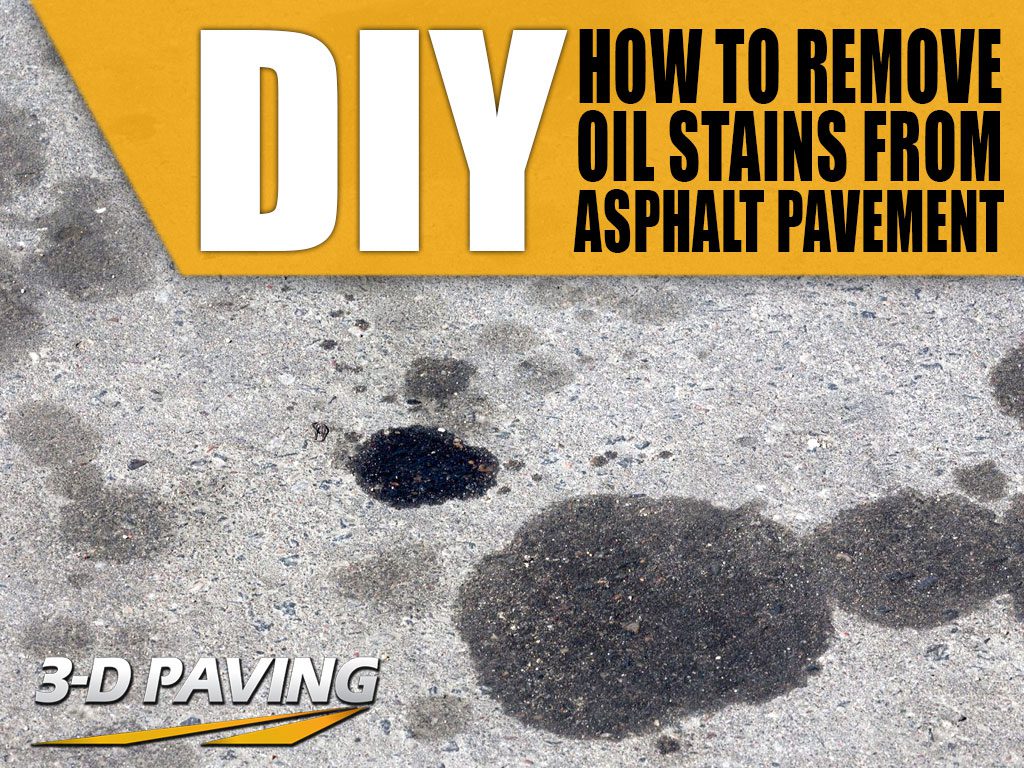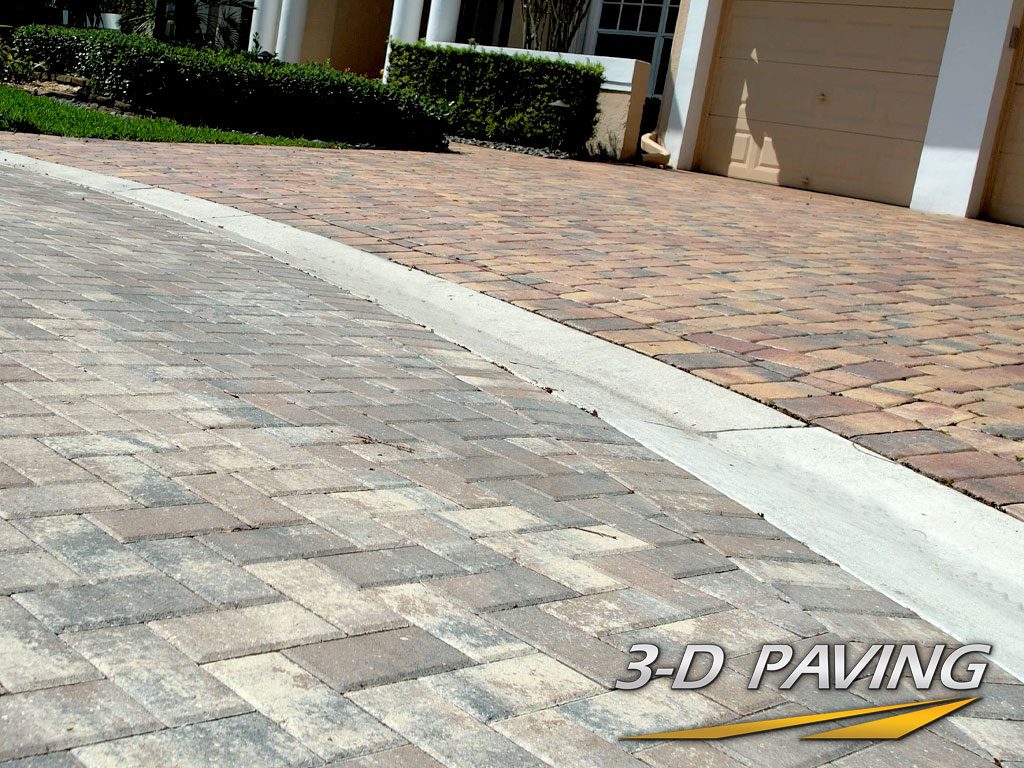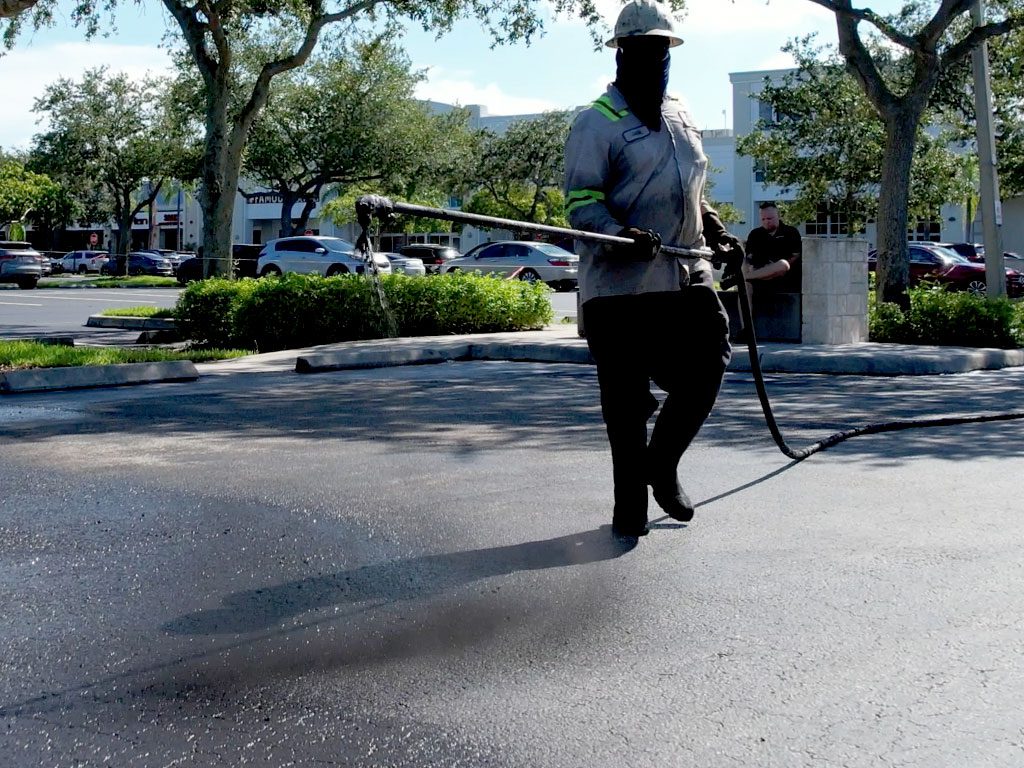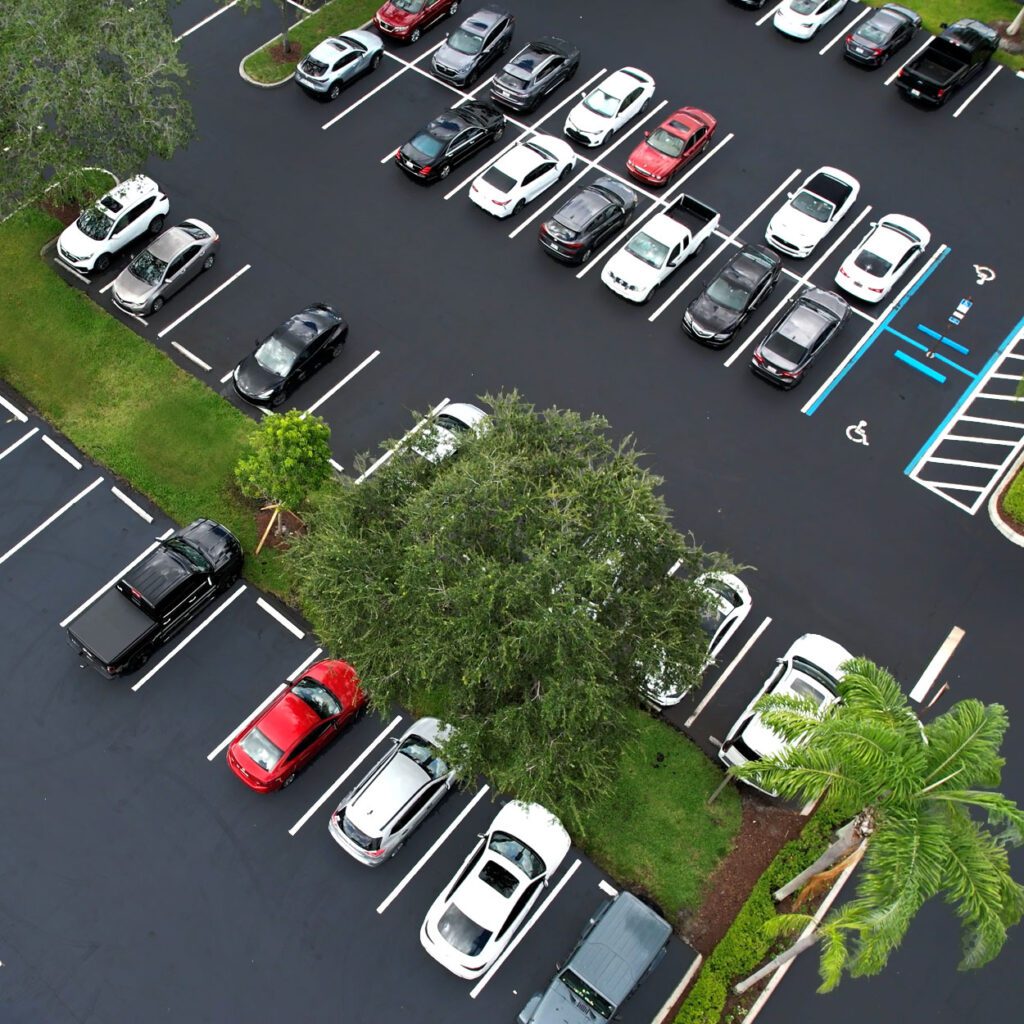Ultimate Guide to Removing Stains from Asphalt

DIY: Ultimate Guide to Removing Stains from Asphalt Beautiful commercial properties, communities, and businesses decorate South Florida. But even here, unsightly asphalt stains from oil, grease and other contaminants can interrupt the beauty on our driveways, roads, and parking lots. In this article, we’ll help you answer all your questions about how to remove stains from asphalt surfaces. Discover DIY solutions to remove oil stains, grease stains, and spots on driveways, parking lots, and roads. Read each option listed below, and see which best suits your specific needs. Each caters to specific types of stains and their severity. Removing oil from asphalt isn’t always any easy proposition but rest assured, we are here to help. These methods can be effective for small or surface stains on asphalt. Older and deeper stains may need more than just soap and water. Sometimes, they will need a professional. If you need help or guidance on your asphalt surfaces, contact us today. Safety Should Always Come First While diving into these DIY cleaning methods, your safety is paramount. Always wear appropriate protective gear, including gloves, goggles, and long-sleeved clothing to shield your skin from chemicals and abrasives. Ensure the workspace is well-ventilated, especially when using potent chemicals like oven cleaners or TSP to avoid inhaling fumes. Important: Make sure to follow all instructions on product labels. If you do not know the safety protocols of a particular cleaner or chemical, seek professional assistance. You can also research chemical safety and the MSDS data sheets online by clicking here. First Response: DIY Solutions Cat Litter: Best for soaking up wet surface oil spot and oil spills, cat litter is a quick and accessible solution. Its absorbent nature makes it excellent for fresh spills and to help remove oil from driveway spills. By drawing out the oil fast to prevent deep penetration into the asphalt. All that being said, kitty litter might not be as effective for older, set-in driveway stains or pavement stains. Using kitty litter to immediately address oil leaks onto asphalt can be a great first step to cleaning up oil stains. Powdered Detergents: These are great for a lot of different asphalt stains. You can make a paste from powdered detergent and hot water or warm water. Then use a brush to scrub the area and when complete rinse the area with clean water. While cat litter absorbs fresh oil, powdered laundry detergent can address everything that remains. Baking Soda: This is a versatile and gentle cleaning agent. Baking soda is perfect for mild to moderate stains, offering a gentle yet effective clean. You can use it after cat litter or detergent to neutralize odors and brighten the asphalt’s appearance. WD-40: When dealing with stubborn or older stains, WD-40 can be a saving grace. It penetrates deep, dissolving tough grime that powdered detergents might struggle with, making the subsequent cleaning process easier. Oven Cleaner: Similar to WD-40, oven cleaner is another powerful solution for difficult to remove stains. It’s especially good for spots that have been there for a long time. Oven cleaner is great at cutting through the grime for a thorough clean. Coca-Cola: Coca-Cola or any Cola type product for that matter, can be a great first response solution. It’s acidity makes it effective for dissolving oil and grease stains. Pour it on the stained area and let it soak. Then use another method like detergent or WD-40 for a complete clean. Cola and Aluminum Foil: Beyond using cola as a soaking agent, combining it with aluminum foil can enhance the cleaning process. Pour cola over the stain and let it soak for a few hours to break down the grease. Then, use a piece of crumpled aluminum foil to scrub the stain. The abrasive texture of the foil helps lift the loosened grease, while being gentle enough not to damage the asphalt. Professional Degreasers: Pro Degreasers are products engineered to tackle complex, stubborn stains. A professional degreaser can break down parking lot stains and lift stubborn grime, preparing the surface for further treatment when necessary. TSP (Trisodium Phosphate): TSP is a heavy-duty cleaner, make sure to read and follow all safety protocols. While wearing protective gear like gloves and goggles, mix cleaner with water to create a paste and scrub with a brush. After scrubbing, rinse thoroughly with water. TSP is especially effective for grease and paint stains. Power Washing: Ideal for removing loosened dirt and grime after treatment with cleaning agents or degreasers. Pressure washing gives a final touch, ensuring your asphalt looks as pristine as the South Florida landscape. Don’t have a pressure washer? You can always use your garden hose. Preventative Measures: Stop future oil stains Now that you’ve addressed the initial asphalt stain problem, it’s time to think about preventive measures like sealcoating. Sealcoating can not only enhance the aesthetic of your asphalt but also it provides a protective layer, making it resistant to oil spills and weather damage. Sealcoating is a service that adds a protective layer to your asphalt pavements protecting them from unsightly oil stains and damage from the weather in south Florida. Call 3-D Paving and Sealcoating today toll free 1-855-735-7623. 3-D Paving and Sealcoating offers top-notch asphalt services that can shield your driveway, parking lot and roads from stains, ensuring it remains in pristine condition. Invest in prevention, and say goodbye to the hassle of frequent stain removal! 3-D Paving and Sealcoating is South Florida’s commercial partner for everything asphalt maintenance, restoration and paving services. With 3-D Paving, tough stains and unsightly asphalt problems are no problem at all. Want to talk to one of our pavement experts? Call us toll free 1-855-735-7623
Commercial Driveway Solutions by 3-D Paving & Sealcoating: Excellence in South Florida

Our family-owned and operated company values integrity and excellence, ensuring that each project we undertake meets our high standards. While we specialize in commercial projects and entire communities through their property mangers and property management firms, we do not cater to single residential jobs. In this article, we’ll explore the various commercial driveway services we offer and how we stand out from our competitors. Looking for Concrete driveways or concrete flatwork? See our concrete services here.
Ensuring a Smooth Asphalt Paving Process: Best Practices for Site Preparation and Construction

Asphalt paving is a complex process that requires careful planning and execution to ensure a high-quality, long-lasting pavement. While selecting the right asphalt mixture design is critical, proper site preparation and construction techniques are equally important. In this article, we’ll take a closer look at the best practices for site preparation and asphalt paving construction, including subgrade preparation, base layer installation, asphalt placement, and compaction techniques. We’ll also discuss common challenges that can arise during the paving process and provide guidance on how to mitigate these issues to ensure a smooth and successful project outcome.
10 Frequently Asked Questions About Parking Lot Repairs

One of the first things a potential client sees when visiting your property or community is your parking lots and roadways. In many cases, your parking accommodations can go a long way to forming a first impression. Let’s be honest, if you are pulling up to look at a new house and the community’s pavements look like Stalingrad during WWII, you won’t necessarily form the best impression. In a world where first impressions can be everything, parking lot repairs are essential in maintaining the curb appeal, safety and overall value of your property.


